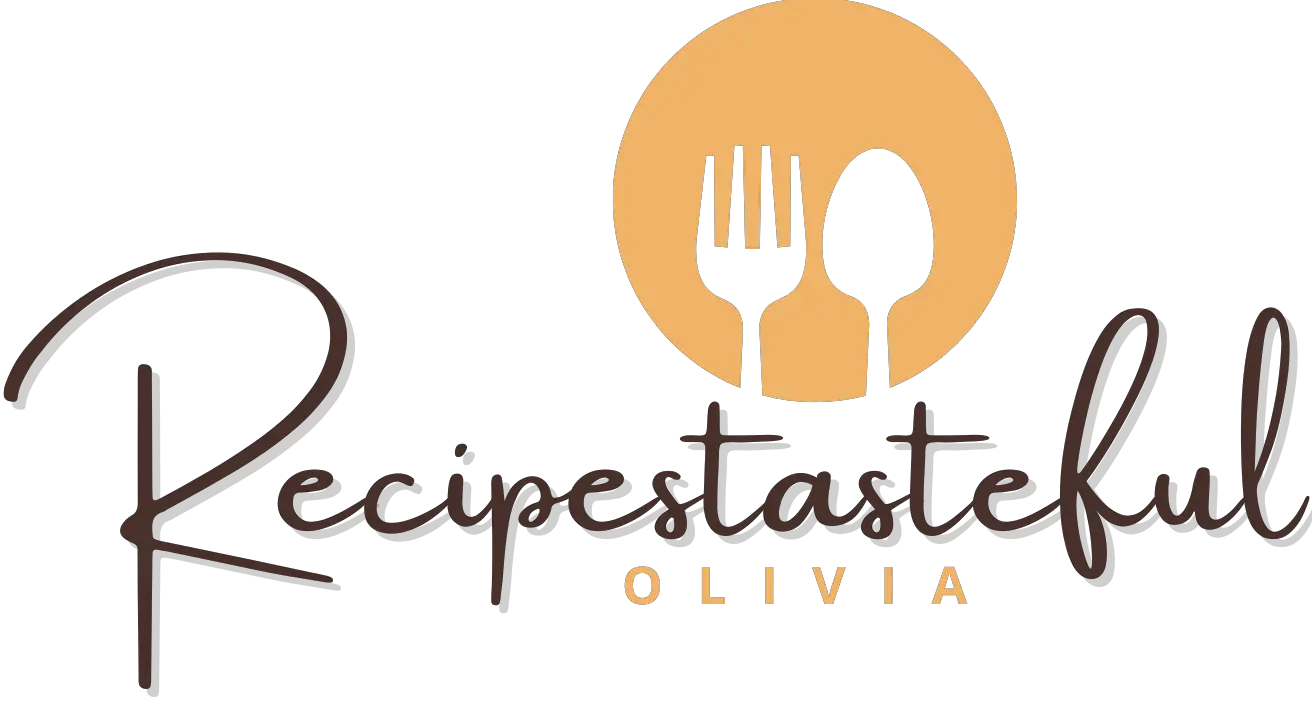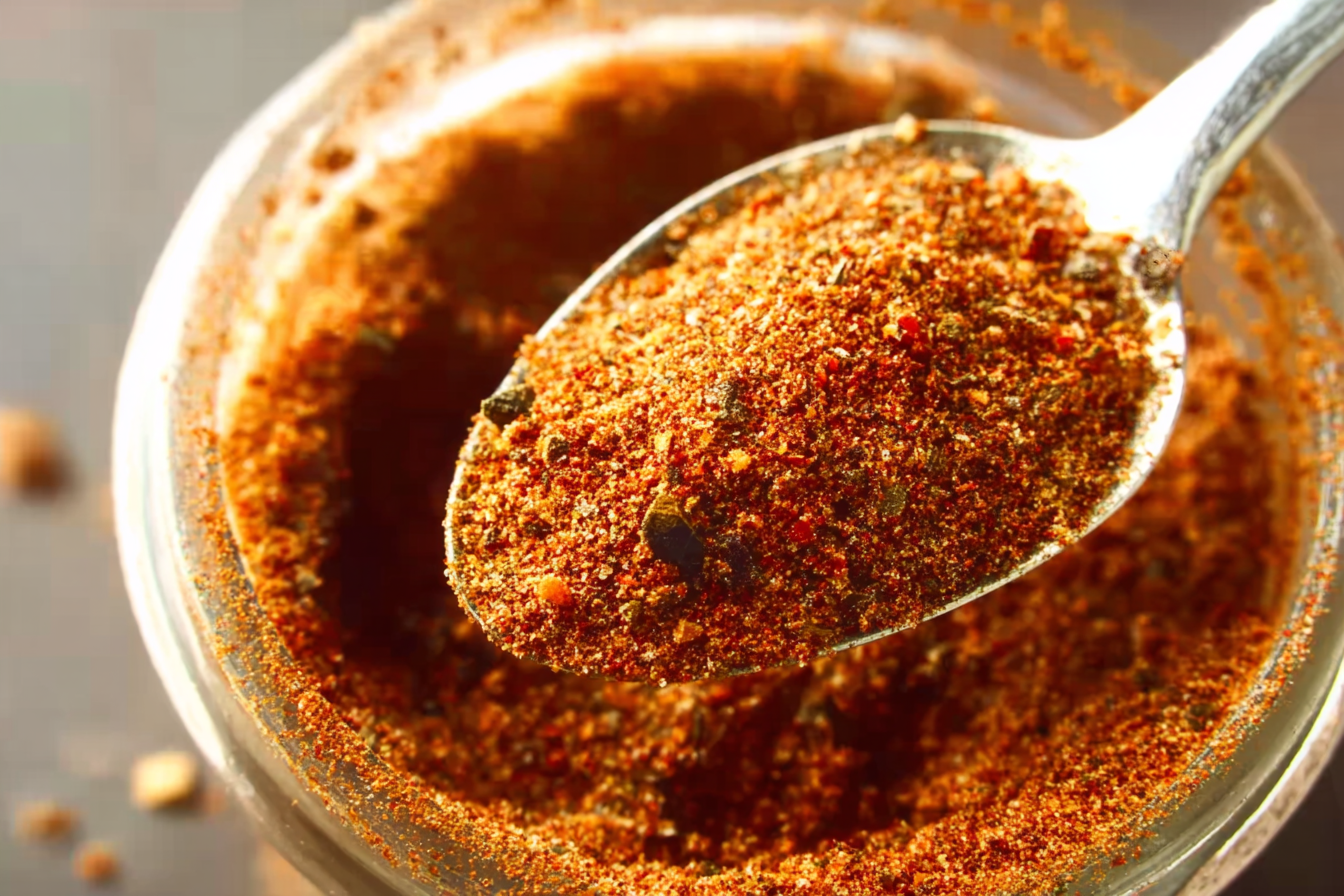Cajun seasoning isn’t just a spice mix—it’s a whole vibe. It’s the fiery kiss of Louisiana in your kitchen, the kind of bold flavor that makes every bite sing with smoky, spicy depth. If you’re into big, exciting flavors (and who isn’t?), this blend might just become your go-to.
But before we dive into how to mix it, use it, or even substitute it, let’s talk about why this article even exists. At RecipesTasteful.com, we didn’t just wake up one day obsessed with spices. It started with a pot of gumbo and a whole lot of trial and error.
This blog was born out of a love for cooking and a curiosity for all things flavor-packed. We started in a tiny kitchen with hand-written family recipes and a big dream: to create a space where anyone—yes, anyone—can cook something delicious and feel like a kitchen rockstar. Cajun seasoning was one of the first spice blends we ever mastered. And once we did, there was no turning back.
Now, with so many people searching online for Cajun seasoning recipes, how to use it, and what to substitute if you run out, it’s time we shared everything we know. So buckle up. We’re taking a flavorful trip through the bayous, the spice cabinets, and everything in between.
Table of Contents
Table of Contents
What Is Cajun Seasoning?
Defining the Spice Blend
At its core, this iconic Southern blend is made of bold spices and herbs, known for their smoky, savory, and spicy punch. It forms the foundation of Cajun cooking—a cuisine born in Louisiana with deep roots tracing back to the French-speaking Acadians expelled from Canada in the 1700s.
This mix isn’t subtle. It’s all about adding fire and flavor to your food, combining paprika, cayenne, garlic, onion, thyme, oregano, and two types of pepper—black and white—for a rich, well-rounded taste.
Though often mistaken for Creole seasoning, the two aren’t identical. Creole tends to be more herb-forward, while this blend leans into heat and depth.
Origin & History: Acadian Roots in the Bayou
This spice mix has deep cultural significance within Louisiana’s Cajun community. When Acadian exiles settled in the swamplands of the South, they relied on local ingredients—wild game, seafood, rice, and native herbs—to create meals that were hearty, spicy, and satisfying.
Over generations, a distinctive cuisine emerged, with this seasoning at its heart. The goal was to turn humble, everyday ingredients into unforgettable meals using only accessible, budget-friendly spices.
That’s why even today, this blend is a favorite in kitchens everywhere—especially for chicken, seafood, or grilled vegetables.
Cajun Seasoning Recipe: Homemade vs Store-bought
Best Cajun Seasoning Recipe (Your Spice Mix Ratio)
Want to know the real secret to unforgettable Cajun flavor? Making it yourself.
Here’s the no-fail Cajun seasoning recipe we use in our kitchen:
- 3 tablespoons paprika (we love smoked for that extra depth)
- 2 tablespoons kosher salt
- 2 tablespoons garlic powder
- 1 tablespoon ground black pepper
- 1 tablespoon ground white pepper
- 1 tablespoon onion powder
- 1 tablespoon dried oregano
- 1 tablespoon cayenne pepper
- ½ tablespoon dried thyme
Cook Mode Tip:
Prevent your screen from going dark while you’re mixing things up. Click that “cook mode” button if you’re reading this from our recipe page!
Why Smoked Paprika Works Wonders
You might be wondering—why smoked paprika instead of regular?
Well, smoked paprika gives the seasoning that rich, fire-roasted depth that makes your mouth water before the food even hits the pan. It’s what makes grilled chicken, blackened fish, or even roasted potatoes go from average to amazing.
If you don’t have smoked on hand, regular sweet paprika works fine. Just know the flavor will lean more mellow and less smoky.
Print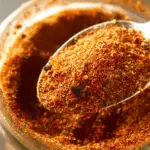
Delicious Cajun Seasoning: The Ultimate Guide to Flavor Explosion!
- Total Time: 5 minutes
- Yield: About 3/4 cup
- Diet: Low Calorie
Description
This homemade Cajun seasoning blend is bold, smoky, and perfectly spicy, ideal for seasoning meats, vegetables, pasta, and more. Made with pantry staples like paprika, garlic powder, and cayenne, it’s a must-have in any kitchen.
Ingredients
- 3 tablespoons paprika (preferably smoked)
- 2 tablespoons fine kosher salt
- 2 tablespoons garlic powder
- 1 tablespoon ground black pepper
- 1 tablespoon ground white pepper
- 1 tablespoon onion powder
- 1 tablespoon dried oregano
- 1 tablespoon cayenne
- 1/2 tablespoon dried thyme
Instructions
- Mix all ingredients together in a bowl or spice jar until evenly combined.
- Use immediately, or store in a sealed container for up to 1 year.
Notes
- Adjust cayenne for more or less heat based on preference.
- Use smoked paprika for a deeper, more complex flavor.
- Perfect for chicken, shrimp, roasted vegetables, or homemade Cajun pasta.
- Store in a cool, dry place away from direct sunlight.
- Prep Time: 5 minutes
- Cook Time: 0 minutes
- Category: Seasoning
- Method: Mixing
- Cuisine: Cajun
Nutrition
- Serving Size: 1 teaspoon
- Calories: 5
- Sugar: 0g
- Sodium: 390mg
- Fat: 0.1g
- Saturated Fat: 0g
- Unsaturated Fat: 0g
- Trans Fat: 0g
- Carbohydrates: 1g
- Fiber: 0.2g
- Protein: 0.2g
- Cholesterol: 0mg
Ingredients Breakdown: What Is Cajun Spice Made Of?
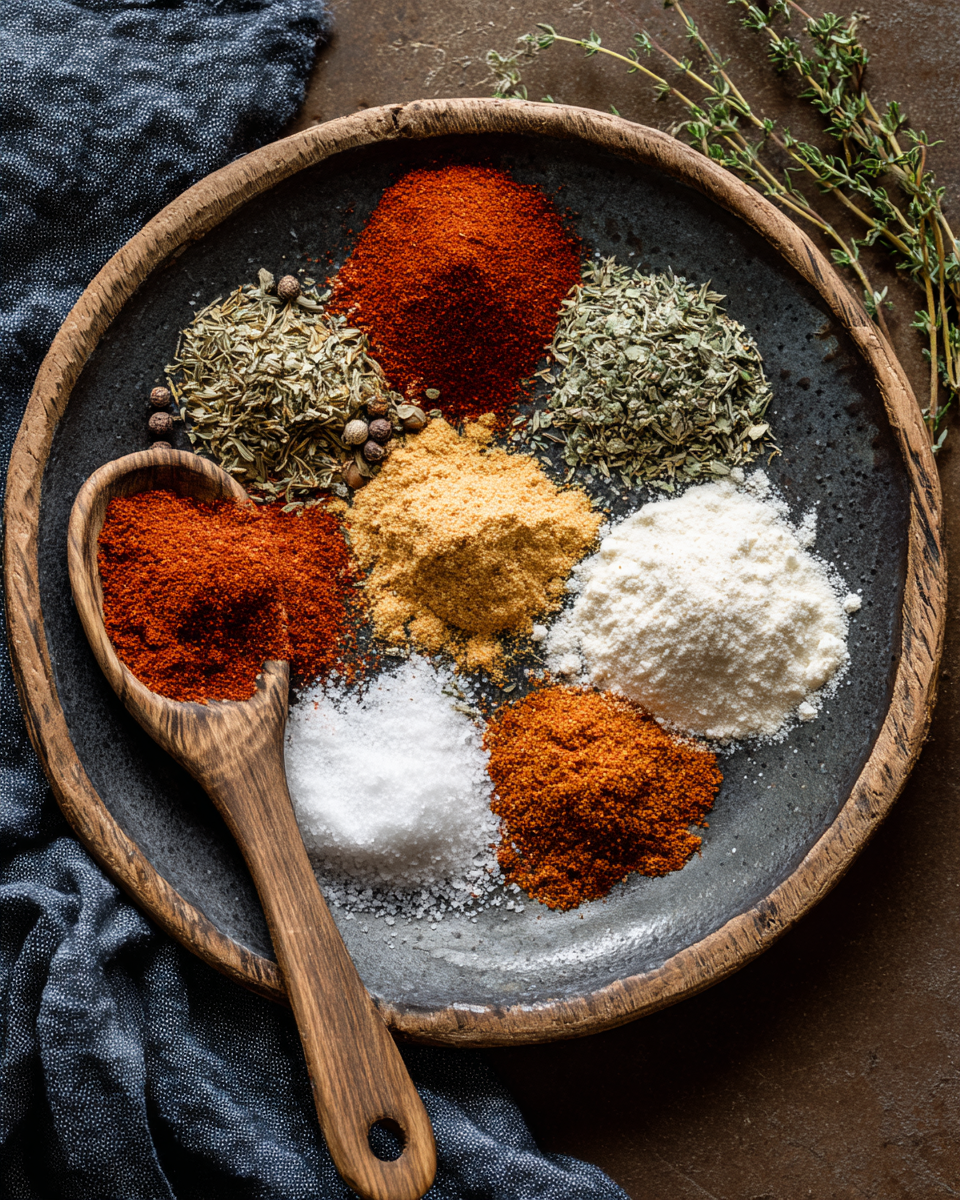
To truly understand Cajun seasoning, it’s essential to break down each ingredient:
1. Paprika (3 Tbsp)
- Smoked paprika (ideal): Brings a deep, smoky aroma.
- Sweet paprika (substitute): Gives vibrant color, milder flavor.
2. Salt (2 Tbsp Fine Kosher)
- Brings out flavors and balances heat. Adjust if you use low‑sodium salt.
3. Garlic Powder (2 Tbsp) & Onion Powder (1 Tbsp)
- Staples for base flavor—savory, slightly sweet, and aromatic.
4. Black Pepper (1 Tbsp) & White Pepper (1 Tbsp)
- Black pepper: Robust heat with peppery bite.
- White pepper: Earthy and mild—together, they create complexity.
5. Oregano (1 Tbsp) & Dried Thyme (½ Tbsp)
- Give herbal warmth and earthiness—traditional in Louisiana cuisine.
6. Cayenne Pepper (1 Tbsp)
- The main source of heat—adjust up or down to suit your spice tolerance.
That combination is why when people ask, “What is Cajun spice made of?”, you can confidently say it’s this carefully balanced mix. It’s also why folks type “best Cajun seasoning recipe” into search engines, hoping to recreate that authentic blend at home.
Is Cajun Just Paprika? Myths & Truths
Contrary to popular belief, this spice blend is far more complex than just paprika. While paprika contributes the vibrant red hue, the real flavor magic lies in the balance of garlic, onion, herbs, peppers, and salt. It’s the full team—especially bold ingredients like cayenne and oregano—that give this seasoning its distinctive kick.
How Hot Is It? Is Cajun Spice Hot or Not?
The heat level typically ranges from mild to medium. Cayenne pepper brings the fire, while paprika and herbs help soften and balance the overall taste. Want it hotter? Add more cayenne. Prefer it mild? Dial it back or replace some cayenne with extra paprika.
This flexibility explains why people often ask, “Is Cajun seasoning spicy?”—it really depends on how you mix it.
Uses: From Chicken to Popcorn
This blend is incredibly versatile and earns its spot in nearly every kitchen:
- For Chicken: A flavorful dry rub for grilled thighs, baked breasts, or wings.
- Seafood & Shellfish: Sprinkle over shrimp, crab, or fish before pan-searing.
- Vegetables & Potatoes: Roast sweet potatoes, cauliflower, or carrots with a touch of the mix for a smoky finish.
- Spicy Popcorn: Melt some butter, drizzle over popcorn, and add a dash of the blend for an addictive snack.
- Pasta & Rice: Stir it into creamy sauces, rice bowls, or jambalaya.
- Soups & Stews: Deepen the flavor in gumbo, chili, or bean stews.
These ideas also reflect what people frequently search for online—ways to use this bold seasoning beyond just meat.se “People Also Search For” ideas highlight how versatile this blend truly is: “Cajun seasoning uses”, “Cajun seasoning for chicken”, even “Cajun seasoning recipe”. It’s not just about flavor—it’s about creativity.
Looking for more bold and flavorful dishes? Check out these tasty recipes:
- Blackened Chicken Alfredo – Smoky, creamy, and irresistible.
- Spicy Cajun Shrimp Tacos – A fusion of textures, flavors, and spice.
These will help you use your homemade Cajun seasoning in delicious ways beyond the ordinary!
Creative Alternatives and Substitutes for Cajun Seasoning
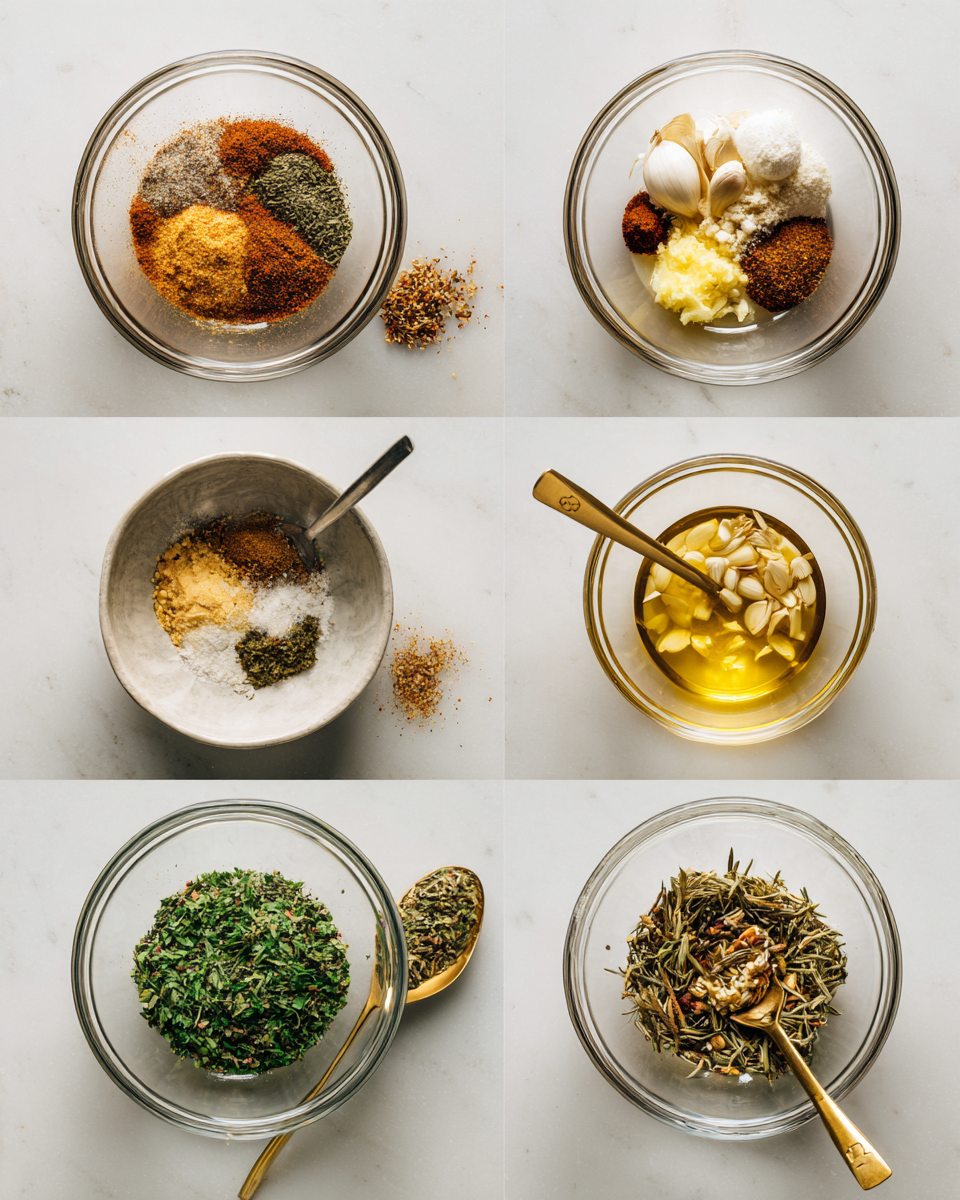
Sometimes you’re mid-recipe and realize you’re out of your go-to spice blend—or you’re cooking for someone watching their sodium or spice intake. Thankfully, there are smart alternatives that replicate the essence without needing the full mix.
1. Creole Seasoning Mix
Creole blends share a similar spice base, but tend to lean more herbal. Basil and thyme take center stage, offering a softer, aromatic twist. Combine paprika, garlic, onion, oregano, and a bit of basil—then add cayenne as needed for heat.
2. Chili-Garlic Powder Blend
For a quick fix, mix chili powder, garlic powder, salt, oregano, and a bit of smoked paprika. This combination delivers deep, earthy notes ideal for tacos, grilled fish, or hearty burgers.
3. Low-Sodium DIY Blend
Watching your salt? Create your own mix with paprika, garlic and onion powders, oregano, thyme, cayenne, and black pepper—just swap kosher salt for a low-sodium version or skip it entirely. It’s a great way to get that Southern-style flavor without overdoing the sodium.
These quick substitutes are perfect for anyone looking up phrases like “What can I use if I don’t have the blend?” or “seasoning alternative for spicy dishes.” They give you flexibility in flavor, whether you’re making chicken, shrimp, or roasted veggies.
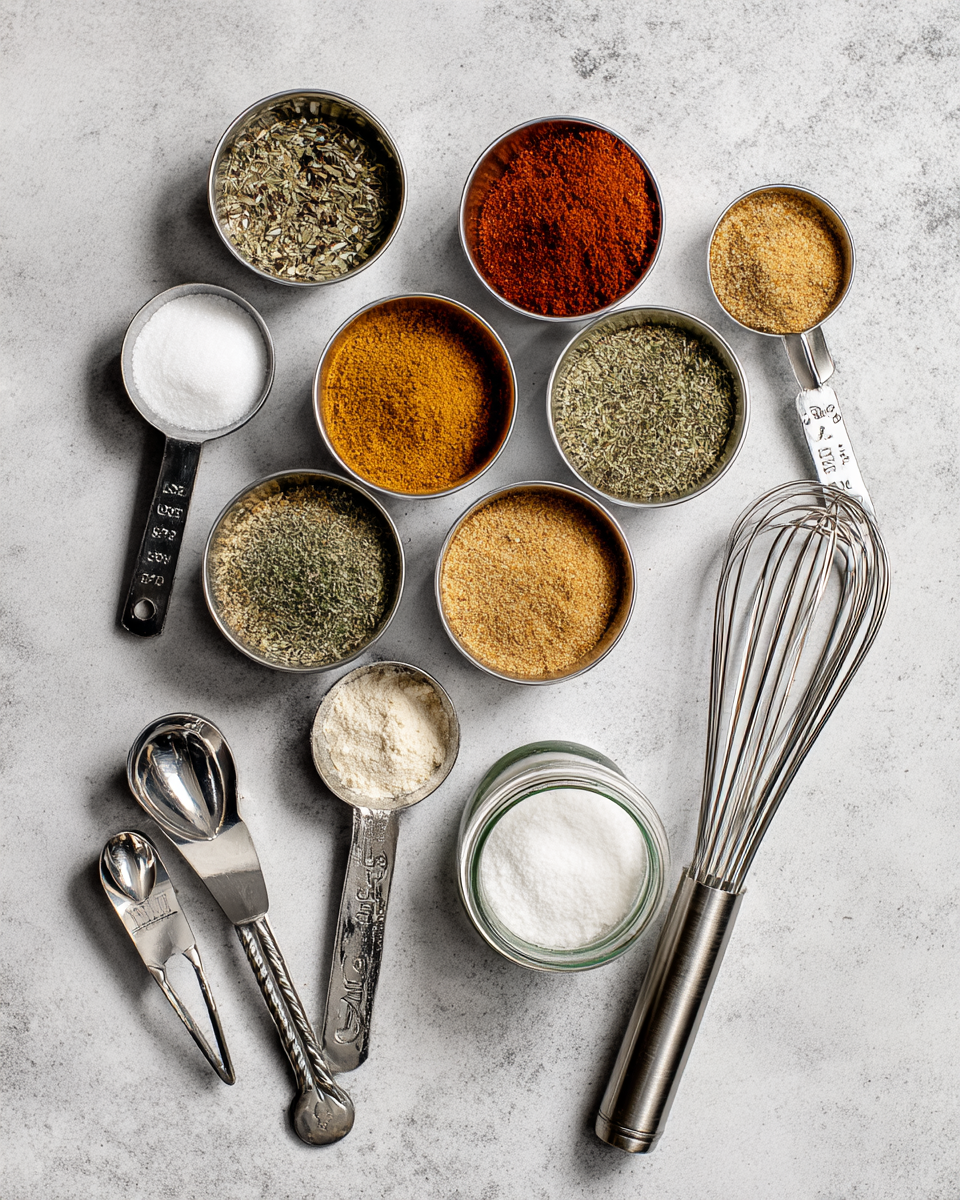
Where to Find It Nearby or Online
If you’re short on time, buying a pre-made jar is always a good call.
-
Grocery Stores
Most supermarkets carry reliable spice blends like Tony Chachere’s and Slap Ya Mama. These mixes offer a well-balanced combination of smokiness and mild heat. -
Gourmet Markets
Boutique spice shops or southern specialty stores often stock regional varieties straight from Louisiana for that authentic touch. -
Online Retailers
Retailers like Amazon and specialty food stores provide dozens of options. A quick search for bold Southern spice blends will pull up both homemade kits and top-rated products.
Whether you’re crafting your own mix or hunting for a trusted store-bought brand, there’s no shortage of ways to keep your dishes flavorful even without traditional Cajun seasoning.
When you’re out and thinking “Cajun seasoning nearby,” these options make it easy to get a jar in no time.
Let’s put that recipe to good use with two flavorful recipes:
- Cajun Chicken & Gravy Bringing Bold Flavor to Your Dinner Plate – A rich, fragrant entrée where Cajun seasoning coats the salmon before being seared and topped with tangy lemon butter.
- Cajun Cabbage Jambalaya – Crispy roast wedges tossed in Cajun seasoning, perfect as a side dish or party snack.
These pair well with our blog’s recipes like Blackened Chicken Alfredo and Spicy Cajun Shrimp Tacos, offering a complete menu inspired by that bold, smoky spice blend.
Health & Nutritional Benefits of Cajun Seasoning
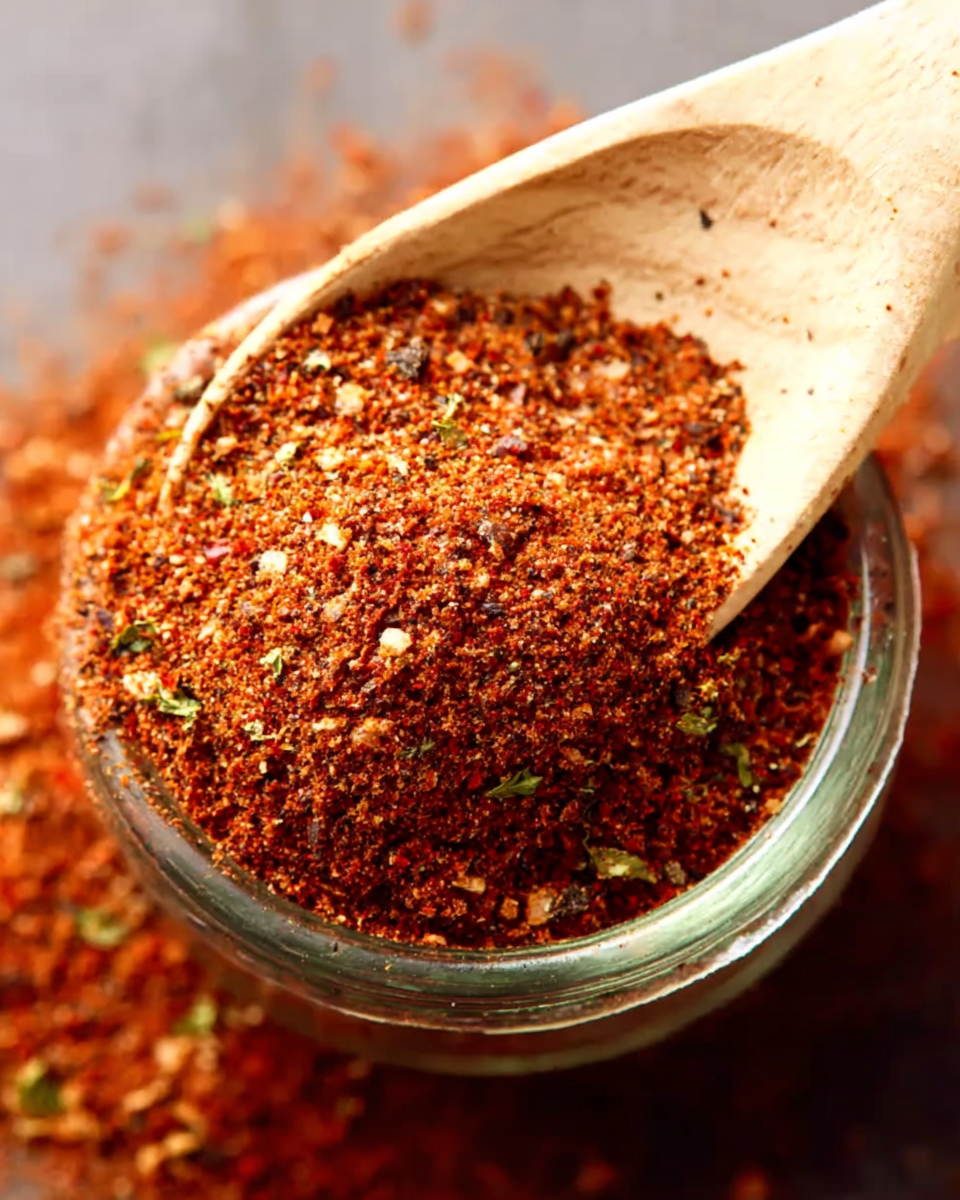
Beyond its bold flavor punch, Cajun seasoning packs surprising nutritional benefits:
-
Antioxidants and Anti-inflammatory Properties
Smoked paprika, garlic, oregano, and thyme are rich in antioxidants, which can help reduce inflammation and support overall wellness. -
Supports Metabolism
The natural capsaicin in cayenne pepper may help boost metabolism, which is part of why some people search “Is Cajun spice hot or not?”—it’s spicy, but also health-supporting. -
Low-Calorie Flavor
Cajun seasoning packs tons of flavor for very few calories—no added sugar or fat—making it a smart choice for dieters seeking healthy Cajun seasoning uses. -
Sodium Consideration
One downside: many blends are high in sodium. If you’re monitoring intake, make or tweak your own Cajun seasoning alternative by reducing salt and using low-sodium ingredients.
Cajun Seasoning for Chicken, Seafood & Beyond
One of the most beloved Cajun seasoning uses is clearly with chicken and seafood. Let’s explore some irresistible ideas:
Cajun Seasoning for Steak
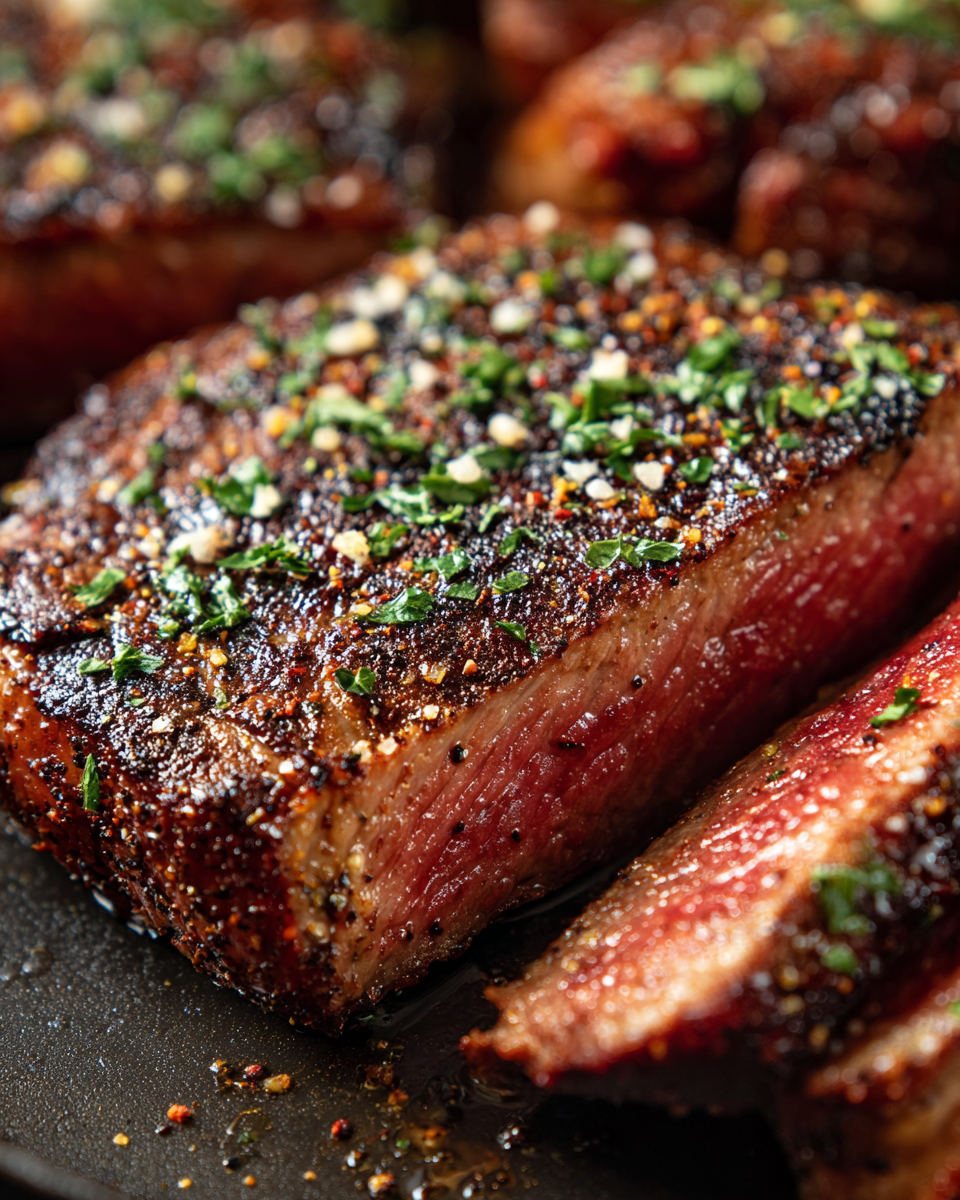
- Dry Rub for Grilled Steak: Coat Steak evenly with Cajun seasoning, let rest for 15–30 minutes, then grill until cooked. The spices create a flavorful crust that locks in juicy goodness.
- Cajun Steak: Toss Steak in oil, then sprinkle with Cajun seasoning before baking or air-frying for crackly, rich flavor.
- Easy Marinade: Mix Cajun seasoning with olive oil, lemon juice, and a little honey to make a quick marinade—perfect for chicken kabobs or sheet-pan dinners.
This spice blend is so flexible, people often search “Cajun seasoning for chicken” or “Cajun seasoning uses” across different meat types, and it delivers every time.
Cajun-Seasoned Seafood
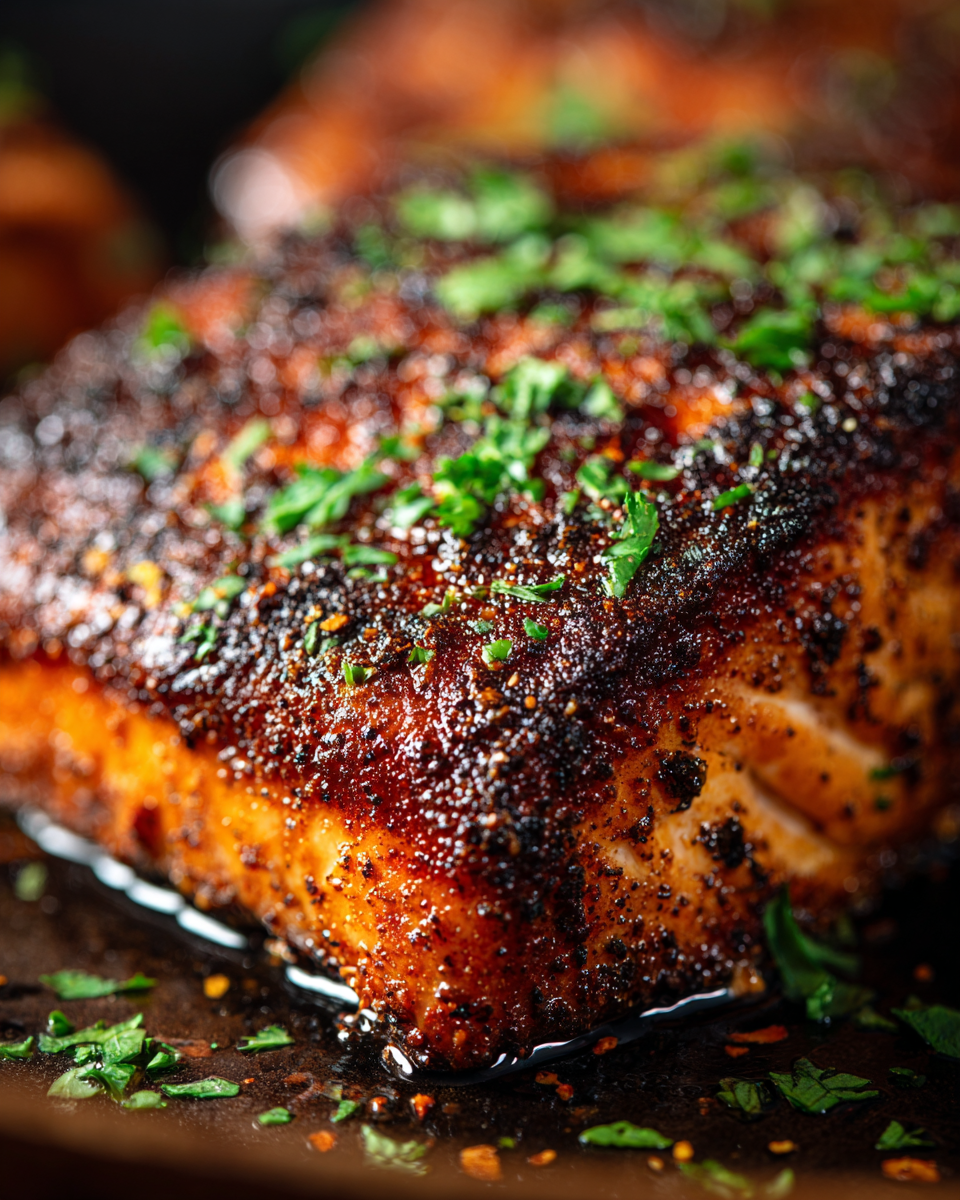
- Blackened Fish: Pat fillets dry, coat heavily with Cajun seasoning, then sear in a hot skillet with butter. Finish with lemon—simple, elegant, and restaurant-worthy.
- Cajun Shrimp: Toss shrimp with Cajun seasoning and a bit of olive oil. Then sauté until pink and serve over rice, pasta, or loaded into shrimp tacos—the flavor is irresistible.
- Shellfish Boil: Add Cajun seasoning to water when boiling blue crabs, crawfish, or clams for a bold, spiced boil that stands out.
These are just a few Cajun seasoning uses you’ll find sprinkled throughout southern-inspired meals—full of character and punch.
More Creative Uses for Cajun Seasoning: Carrots, Popcorn, Burgers
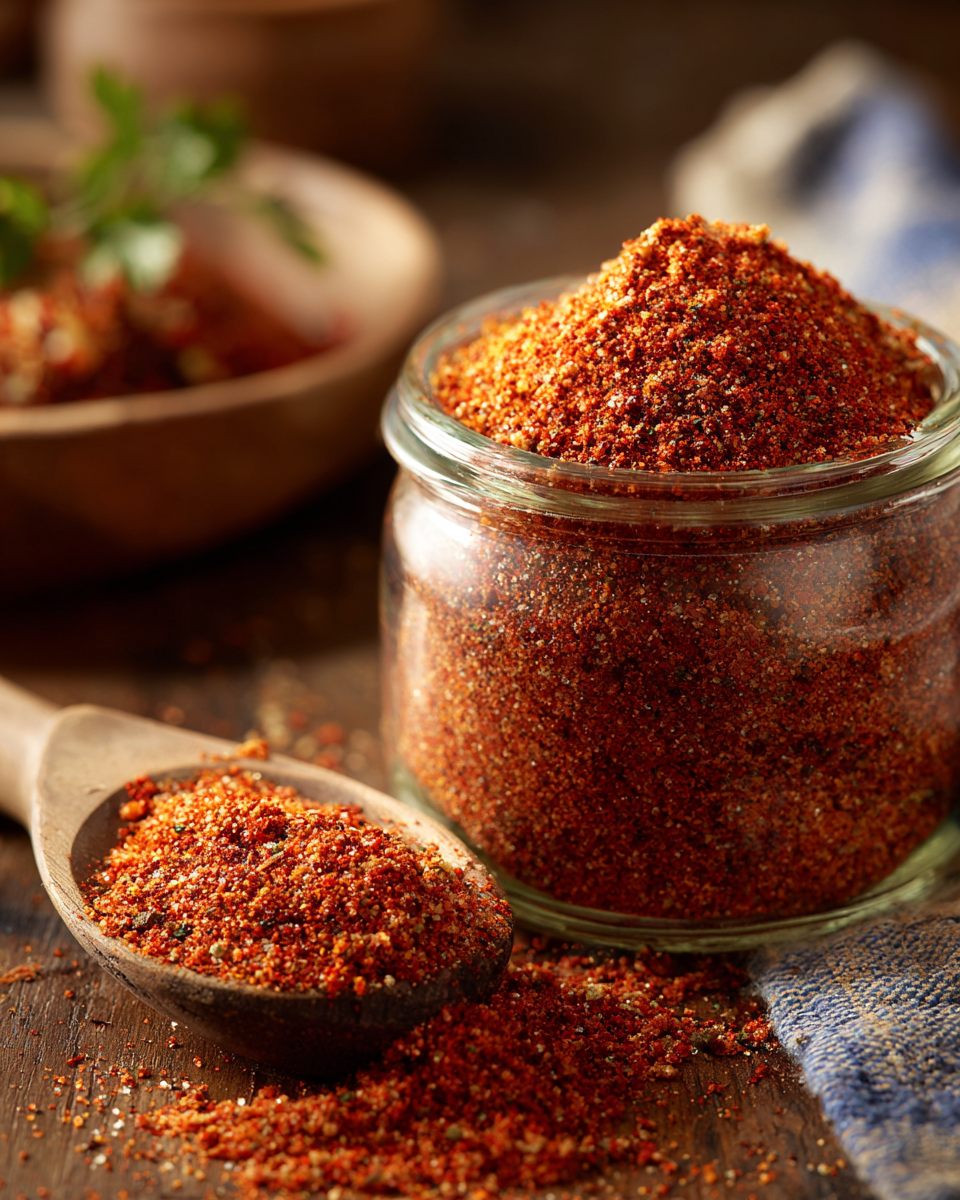
Don’t limit this bold blend to proteins—it shines in some surprisingly tasty ways:
- Roasted Vegetables: Toss carrots, cauliflower, green beans, or zucchini with olive oil and a light sprinkle of the seasoning before roasting. The result? Rich, savory veggies with a smoky kick.
- Spicy Popcorn: Forget plain buttered popcorn! Drizzle freshly popped kernels with melted butter, then dust with the spice mix for a snack that disappears fast.
- Burgers & Meatloaf: Add a spoonful to ground beef, turkey, or veggie patties. It deepens the flavor and brings a delicious, smoky heat to your favorite comfort food.
These creative applications show why many people search for new “seasoning uses” when looking to spice up everyday meals.
Cooking Tips to Maximize Flavor
- Start Light: Begin with a light hand—you can always add more but you can’t take it out.
- Use Oil: A light coating of oil helps the seasoning stick and bloom during cooking.
- Let It Rest: After cooking, allow your dish to rest briefly. This helps the flavors mellow and integrate fully.
- Layer the Flavor: Use it throughout your recipe—in rubs, sauces, and finishing touches—for full-bodied flavor.
Conclusion: Why This Seasoning Belongs in Your Pantry
By now, you’ve discovered how this Southern blend can transform almost any dish. It’s more than just a spice—it’s a shortcut to flavor, perfect for proteins, roasted vegetables, or quick snacks like popcorn.
From chicken and seafood to shrimp tacos and grilled corn, this mix adapts to any kitchen style. Whether you’re looking for a quick recipe, searching for nearby products, learning about its origin, or wondering about the heat level—it’s all here in one guide.
So grab your favorite jar or mix your own. Once you start cooking with it, you’ll wonder how your kitchen ever survived without Cajun seasoning.ith that fiery Cajun flavor!
Cajun Seasoning FAQ
Is Cajun spice hot or not?
It ranges from mild to medium spicy. The heat level depends on cayenne—reduce it for a milder blend or increase for more kick. So yes, Cajun seasoning spicy? the answer is—it’s customizable!
Is Cajun just paprika?
No. Though paprika provides vibrant color and mild pepper flavor, the true magic lies in the combination—it’s paprika, garlic, onion, thyme, oregano, salt, black & white pepper, and cayenne that bring Cajun seasoning to life.
What can I use if I don’t have Cajun seasoning?
Try Creole seasoning, or mix your own with paprika, garlic, onion, oregano, thyme, and a bit of cayenne. Adjust salt to taste for a personalized Cajun seasoning substitute.
What is Cajun spice made of?
It’s a vibrant blend of paprika, salt, garlic powder, onion powder, ground black pepper, ground white pepper, dried oregano, dried thyme, and cayenne pepper, all combined to create that signature bold, slightly smoky flavor.
Is Cajun spice hot or not?
Cajun seasoning is typically mild to medium-spicy. The heat depends on the amount of cayenne used and whether you include smoked or sweet paprika. Adjust heat to taste—add more cayenne for a fiery hit, or less for a gentler, warming flavor.
Is Cajun just paprika?
Absolutely not. While paprika gives Cajun seasoning its rich red color, the full flavor comes from combining garlic, onion, oregano, thyme, salt, and both black & white peppers—plus cayenne for heat. Paprika adds warmth, but the synergy of spices makes this blend unforgettable.
